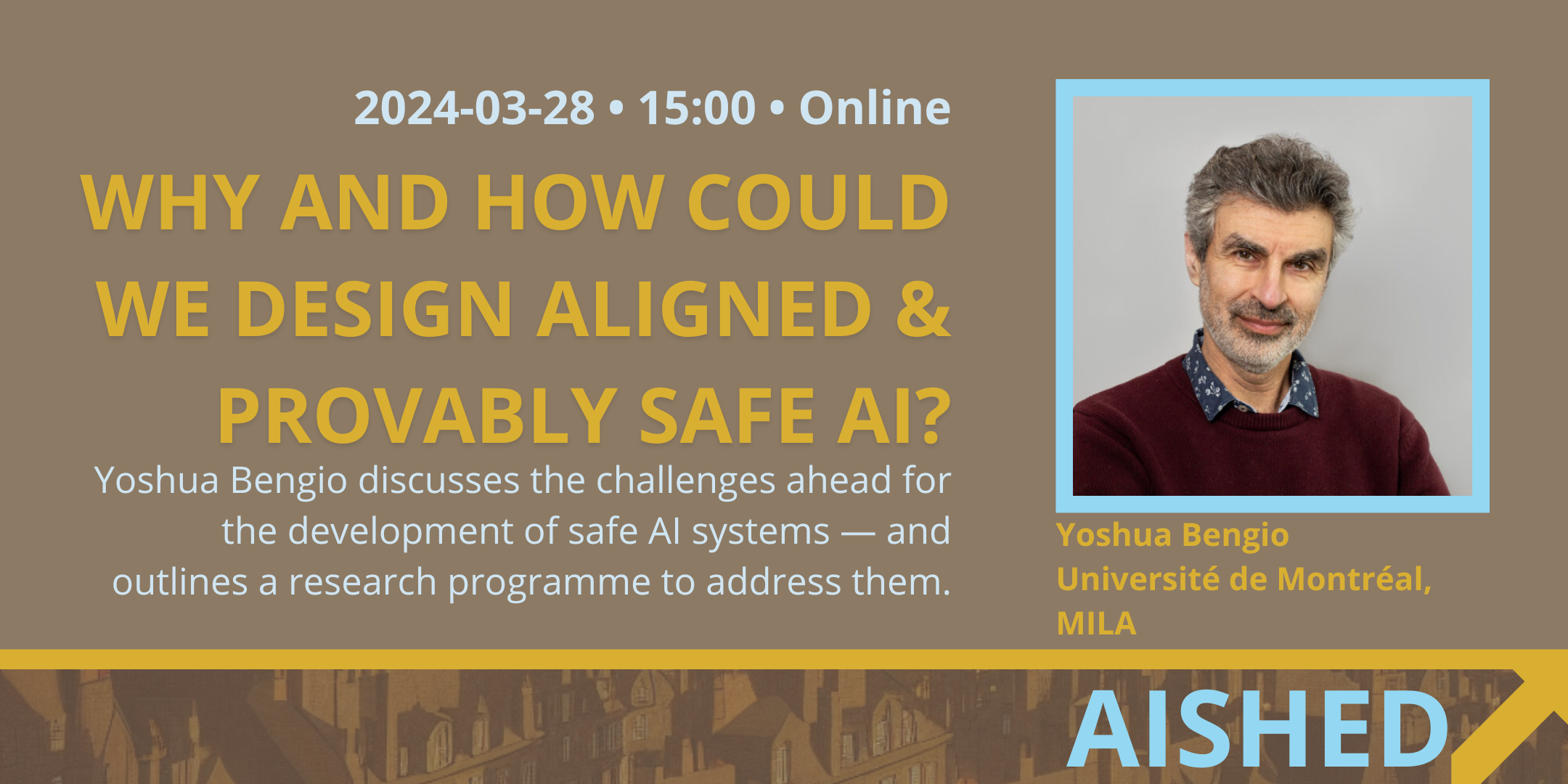
Why and How could we Design Aligned and Provably Safe AI?
Yoshua Bengio discusses the challenges ahead for the development of safe AI systems — and outlines a research programme to address them.
Thu 28 Mar 2024, 15:00 (UTC)
Yoshua Bengio
Online
Abstract
This presentation will start by presenting the major risks associated with advanced AI systems, as we progress towards human-level competence - or more - on more and more cognitive tasks. This suggests two significant challenges to make sure that we avoid catastrophic outcomes: the technical alignment challenge (finding a way to design AI that will not harm humans, at least not intentionally, a yet unsolved problem) and the political challenge of coordination and democratic governance, at national and international levels (making sure that everyone follows the safety protocols and does not abuse the power of AI). I will then outline a machine learning research program to obtain quantitative and conservative risk evaluations to address the alignment challenge, with guarantees that get stronger with more compute. This is based on deep learning methods for amortized inference of the Bayesian posterior over causal theories of the data available to the AI, and taking a risk management posture in which the AI takes conservative decisions accounting for the uncertainty around consequences of its actions and what humans really consider harmful.
Speaker Bio
Recognized worldwide as one of the leading experts in artificial intelligence, Yoshua Bengio is most known for his pioneering work in deep learning, earning him the 2018 A.M. Turing Award, “the Nobel Prize of Computing,” with Geoffrey Hinton and Yann LeCun.
He is Full Professor at Université de Montréal, and the Founder and Scientific Director of Mila – Quebec AI Institute. He co-directs the CIFAR Learning in Machines & Brains program as Senior Fellow and acts as Scientific Director of IVADO.
In 2019, he was awarded the prestigious Killam Prize and in 2022, became the most cited computer scientist in the world. He is a Fellow of both the Royal Society of London and Canada, Knight of the Legion of Honor of France, Officer of the Order of Canada, Member of the UN’s Scientific Advisory Board for Independent Advice on Breakthroughs in Science and Technology since 2023 and a Canada CIFAR AI Chair.
Concerned about the social impact of AI, he actively contributed to the Montreal Declaration for the Responsible Development of Artificial Intelligence.